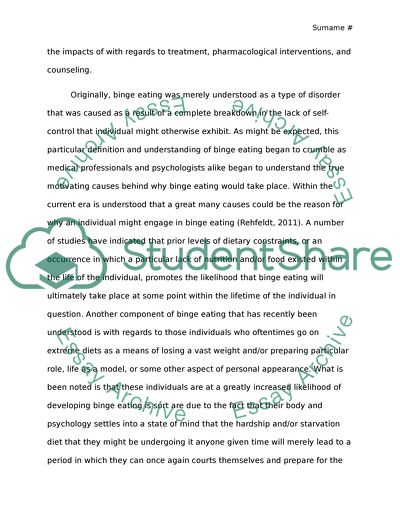Cite this document
(“Binge Eating: An Analysis and Discussion into Its Determinants and Research Paper”, n.d.)
Retrieved from https://studentshare.org/psychology/1488406-investigate-a-psychological-phenomenon-or-disorder
Retrieved from https://studentshare.org/psychology/1488406-investigate-a-psychological-phenomenon-or-disorder
(Binge Eating: An Analysis and Discussion into Its Determinants and Research Paper)
https://studentshare.org/psychology/1488406-investigate-a-psychological-phenomenon-or-disorder.
https://studentshare.org/psychology/1488406-investigate-a-psychological-phenomenon-or-disorder.
“Binge Eating: An Analysis and Discussion into Its Determinants and Research Paper”, n.d. https://studentshare.org/psychology/1488406-investigate-a-psychological-phenomenon-or-disorder.


